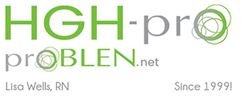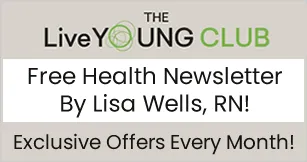DNA Repair - Why We Need It

Dr. Michael Fenech, a researcher at the CSIRO, the Commonwealth Scientific and Industrial Research Organization has been doing clinical research on the DNA of the human body and how it relates to the aging process.
Paul Willis, a reporter for the Australian Broadcasting Corporation interviewed Dr. Fenech.
The Interview About DNA Repair
Paul Willis: Getting older means wearing out.
But it's not just muscles, joints and organs that suffer. The older we get, the more damage we do to our own individual blueprint for life: our DNA. And the consequences of a lifetime's DNA damage could be a range of degenerative diseases and cancers. But now this man has made the health of your DNA his top priority.
Dr. Fenech: We should consider damage to the genome as a fundamental disease that can be diagnosed and treated.
Paul Willis: And the good news is, we can all take simple steps toward a healthier genome.
Dr. Fenech: We know that to some degree it depends on the genes you inherit. However, we also know that you can actually reduce that rate of genome damage.
Paul Willis: This could be the biggest breakthrough in preventative medicine since the discovery of vaccination.
Working in the CSIRO's Health Sciences division, Michael has been looking at how a range of simple treatments can effect the health of our DNA and I'm about to become a guinea pig to test Michael's theories. He claims that one particular treatment can actually help repair damaged DNA. But the first step is to look at my DNA and see how much damage I've done to it over the last 40 years.
With a little persuasion my white blood cells are made to divide. In each cell's nucleus the strands of DNA are supposed to make nice neat copies - but sometimes things go wrong.
Dr. Fenech: We've been looking for abnormalities and the shape of those nuclei and then the formation of small nuclei called micro-nuclei where the aberrant DNA or the broken DNA tends to be located.
Paul Willis: If the DNA is damaged, the nucleus doesn't divide cleanly into two equal parts. Michael counts the number of these bad copies from 1000 cells.
This gives him a rate for my personal DNA damage which he can then compare to typical rates of DNA damage in people my age. And the results are encouraging!
Dr. Fenech: Well we've had a look at your results and that yellow dot over there is you.
Paul Willis: So I've actually got quite low damage.
Dr. Fenech: You are actually tracking not too badly for your age.
Paul Willis: So there is actually one index on which I'm actually relatively healthy.
Dr. Fenech: You are actually doing quite well on this index, although not as well as an 18 or 25 year old.
Paul Willis: Right.
Dr. Fenech: But that would be interesting to see whether it were possible to bring that rate down to somebody who's 20 years younger.
Paul Willis: So, even though my DNA is already in a pretty healthy state, Michael thinks it's possible to undo some of the DNA damage I have already done to my genome.
That's a remarkable claim and I have to admit, I'm skeptical. So I'm off to Professor Bruce Armstrong at the University of Sydney. He'll know if really is possible to undo some of my DNA damage.
Professor Bruce Armstrong: I think the answer to that is in principle, yes. We do know that there's a dynamic process going on here where DNA has been damaged, DNA is being repaired, damaged DNA is being eliminated from the body and so on and if you can slow down the rate at which DNA damage occurs then you will improve the state of your DNA.
Paul Willis: So time to take the good Doctor's challenge. And the treatment is a pretty simple one.
According to Michael,DNA has its own set of rebuilding tools built into its structure but they can't do their job effectively unless there is plenty of folate and B12 around.
Alarmingly, around 9 out of 10 Australians do not have enough folate in their diets to provide for the basic cell functions of DNA replication and repair.
By far the best source of dietary folate are chicken livers, fried of course, but I have a cholesterol problem and so these guys are off the menu. If I want to go to vegetables, broccoli and brussel sprouts are great, but I'd still need to eat half a kilo a day to get the folate I need, and I think my wife and friends might complain about the side effects. So I've decided to take pills instead.
I'll need about 500 micrograms folate or folic acid and 50 micrograms of vitamin B12 daily to help with the DNA rebuilding work. And, for three months I stuck to the plan. No matter where I went, I faithfully took my folate and B12 every day. After three months, I'm itching to know if my DNA has improved!
Paul Willis: Have I done anything?
Dr. Fenech Yes well it looks like the supplements you were taking have had an effect on the rates of DNA damage in your cells.
Paul Willis: What sort of impact?
Dr. Fenech: Well we observed about a 45% reduction.
Paul Willis: 45%?
Dr. Fenech: Yes.
Paul Willis: That sounds very good.
Dr. Fenech: It's pretty good. The largest reduction was in this type of damage which is actually pretty important because it's thought to create the genomic instability that leads to the genetic changes that initiate cancer.
Paul Willis: This is great news for me - particularly seeing as there are some rather nasty cancers lurking in the family history. But, once again, the news sounds almost too good to be true. So it's back to Professor Armstrong to put my results into context. He's already found folate can have an amazing effect in children.
Professor Bruce Armstrong: If we can see a 60% reduction in risk of a childhood cancer possibly as a result of folate in pregnancy. Now your 45% reduction in DNA damage doesn't sound all that implausible.
Paul Willis: Back in Adelaide Michael has big plans for his research findings. He's proposing the establishment of Genome Health Clinics where people can fine-tune their vitamin consumption to suit their own individual DNA. And such a clinic would not have to be buried away inside a huge hospital.
Dr. Fenech: You could go to the clinic, give your blood sample and after three months to find out whether the change you have made for your diet has actually caused you any benefit or might have caused you harm. It could possibly be a shop front in Rundle Mall, definitely.
Paul Willis: So in the not too distant future, busy people will be able to participate in this break through in preventative medicine with a simple blood test in a shop-front clinic. And if my own experience is anything to go by, it will be a simple and painless process that could help prevent some serious illnesses down the track.
Our FDA registered and U.S. made Telomere/DNA homeopathic supplement is formulated to help restore the DNA structure that becomes damaged with age and due to environmental and other factors.
It also contains Cycloastragenol, which is sourced from Astragalus and is standardized to 98%. This groundbreaking component is the one ingredient that has been shown to activate telomerase in order to lengthen the telomeres and extend the life of cells.
For more information about this product click below:
Recommended Reading
Telomeres and How They Extend Life and Improve Health


